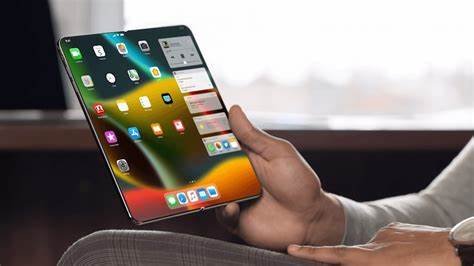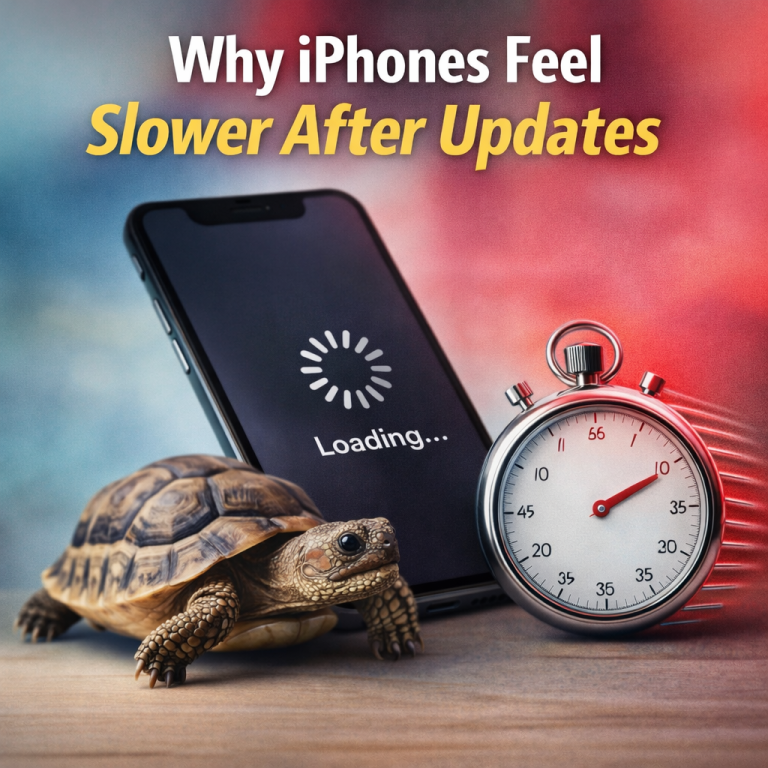In recent years, the consumer electronics market has witnessed a significant shift towards foldable technology. Major players in the industry have already introduced foldable smartphones, aiming to combine the convenience of a compact device with the versatility of a larger screen. As the popularity of foldable devices continues to grow, Apple’s entry into this market is highly anticipated. By 2026, Apple is set to launch two foldable devices, marking a new chapter in their innovation journey.
Apple has built a reputation for being at the forefront of technological advancements. Their current device lineup, which includes the iconic iPhone, iPad, and Macbook, exemplifies their commitment to design excellence and user experience. Historically, Apple has approached innovation with a meticulous strategy, often waiting to perfect emerging technologies before making their market debut. This cautious yet precise methodology has allowed them to consistently deliver high-quality products that not only meet but often exceed consumer expectations.
Why Bose QuietComfort Ultra Earbuds Are the Best for Music Lovers [NOW 17% OFF]
The decision to venture into the foldable device market aligns with Apple’s tradition of adopting transformative technologies. The company’s strategy appears to be driven by the market’s positive reception towards foldable devices and the potential these devices have to revolutionize user interaction. By integrating foldable technology, Apple aims to offer a product that seamlessly blends functionality and compactness, thus addressing the growing demand for versatile personal tech devices.
The anticipation surrounding Apple’s foldable iPhone and other foldable devices is palpable. Consumers and industry experts alike are eager to see how Apple will bring its unique touch to this evolving technology. The introduction of foldable iPhones by Apple is not merely an adoption of a trend but a calculated move to redefine the possibilities of mobile devices. As we delve further into the specifics of these forthcoming innovations, it becomes evident that Apple’s commitment to enhancing user experience continues unwaveringly, with their eyes set firmly on the future of technology.
Details and Specifications of the Foldable Devices
As anticipation builds for Apple’s forthcoming innovations, the focus naturally shifts to the technical details of their rumored foldable devices. Speculations suggest these devices, potentially dubbed the best foldable iPhones, will be groundbreaking in their design and functionality. According to industry insiders, Apple is reportedly planning two distinct types of foldable devices – one with a clamshell design and the other resembling the book-like foldability of current tablets.
The clamshell design is expected to feature a compact, portable form factor ideal for everyday use. This model is likely to boast a flexible OLED display, which has become the standard in the foldable market, providing vivid colors and deep contrasts. The clamshell would offer an external screen for quick access to notifications and essential functions, complemented by a larger internal screen when fully opened. This versatility would appeal to users seeking a blend of convenience and functionality in their foldable iPhone.
On the other hand, the book-like foldable device is anticipated to cater to power users who prioritize enhanced screen real estate. This model might incorporate mini-LED technology, which offers superior brightness and power efficiency compared to traditional OLEDs. Rumor mills suggest that this iteration could either be a foldable iPhone with expanded display capabilities or possibly a hybrid device serving as both a tablet and a phone, revolutionizing productivity and multimedia consumption.
Additionally, Apple is expected to integrate various unique features that set these foldable iPhones apart from competitors. Innovations could include advanced hinge mechanisms ensuring durability, cutting-edge software optimizations for seamless multitasking, and possibly new functionalities leveraging the foldable form factor. Exciting new designs and configurations are anticipated, making these devices not just functional but also aesthetically superior.
These speculative features and specifications indicate that Apple aims to push the boundaries of what’s possible with foldable technology. By merging design excellence with advanced display technologies, Apple seeks to establish its foldable devices as benchmarks in the industry, potentially influencing the future landscape of mobile technology.
Anticipated Market Impact and Consumer Reception
The imminent entry of Apple into the foldable device market with its anticipated foldable iPhone models is poised to have a significant impact on the tech industry landscape. Historically, Apple has had a notable influence on market trends, often setting new benchmarks with its innovative products. The advent of the Apple foldable iPhone could potentially amplify this effect, reshaping consumer expectations and redefining standards in the foldable device segment.
Currently dominated by brands such as Samsung and Huawei, the foldable smartphone market has seen considerable developments and varying degrees of consumer enthusiasm. Apple’s entry could intensify competition, compelling other brands to innovate further and refine their offerings. Given Apple’s robust ecosystem and its reputation for high-quality, user-friendly devices, the best foldable iPhone might attract a significant portion of consumers who have been hesitant to adopt foldable technology due to unresolved usability and durability concerns in existing models.
The consumer reception is anticipated to be optimistic, largely driven by Apple’s strong brand loyalty and its ability to deliver well-integrated, seamless experiences across devices. Enthusiasts and existing Apple users are likely to welcome an Apple foldable iPhone, provided it meets the high standards associated with the brand. This loyalty, combined with Apple’s extensive marketing capabilities, could result in rapid adoption, potentially setting new sales records similar to past product launches.
However, Apple’s venture into the foldable phone market is not without challenges. Pricing strategies will be crucial; premium pricing, a hallmark of Apple products, might deter price-sensitive consumers unless warranted by revolutionary features or substantial improvements over competitors. Additionally, ensuring sufficient availability and managing supply chain dynamics will be vital to meeting demand and sustaining consumer interest post-launch.
The foldable iPhone heralds exciting opportunities for Apple to reinforce its market leadership while invigorating the foldable device niche. As the company prepares to unveil its innovative foldable models, the tech community and consumers alike watch with keen interest, speculating on the transformative impact these devices will bring.
Future Outlook and Technological Innovations
As Apple prepares to launch two foldable devices by 2026, the tech industry is abuzz with speculation on the potential advancements and innovations that could follow. One significant area of focus is the durability of foldable screens. Current foldable devices on the market have faced challenges with screen longevity and reliability. Apple’s investment in this field is expected to lead to breakthroughs that enhance screen robustness while maintaining high-resolution quality. This could set new standards for the industry and encourage more consumers to adopt foldable technology without concerns over durability.
Improved battery life is also on the horizon as a critical innovation. Foldable devices typically demand more power due to their larger screens and additional functionalities. By leveraging advanced battery technologies, Apple is likely to increase the efficiency and lifespan of its foldable iPhone. Enhanced battery performance would not only elevate user satisfaction but could also spur more widespread adoption of foldable devices by alleviating one of the primary constraints associated with current models.
Another exciting possibility is the enhancement of the overall user experience. The best foldable iPhone from Apple is anticipated to offer seamless transitions between different device modes, optimizing usability for various applications such as multitasking, gaming, and productivity. Apple’s expertise in software and ecosystem integration will likely result in a foldable iPhone that leverages iOS in novel ways, offering unique functionalities that distinguish it from other foldable devices.
The introduction of the Apple foldable iPhone could also influence broader mobile technology trends. Competitors may accelerate their innovation pipelines, leading to a surge in foldable technology development across the industry. As a result, consumers can expect a richer diversity of foldable devices, each vying to offer better features and more refined user experiences. This competitive drive can propel substantial advancements in areas such as screen technology, battery optimization, and flexible components.
In summary, Apple’s entry into the foldable device market is poised to drive significant technological advancements. With expectations of more durable screens, superior battery life, and enhanced software integration, the future of foldable technology looks promising. As Apple sets new benchmarks, the ripple effects on the broader tech industry could be profound, leading to a new era of innovation and consumer experiences.
Source: 9to5mac
"Note:We may receive a affiliate commission when you purchase products mentioned on our website."




